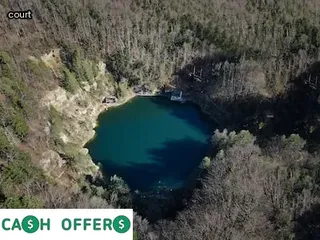The probate process in North Dakota can be complicated and intimidating, but understanding it is essential to unlocking the mysteries of North Dakota probate listings for real estate. In order to understand how the process works, it is important to know what probate is and why it exists in North Dakota.
Probate is a legal process that validates a deceased person's will and divides their assets according to their wishes. In North Dakota, probate begins when an executor or administrator of the estate files a petition with the court.
The court then assigns a personal representative who administers the estate by gathering assets, paying debts and taxes, distributing assets to heirs, and closing the estate. When real estate is involved in an estate, it must go through probate before being sold or transferred.
This means that buyers must be aware of any potential legal issues that may arise during this process so they can make informed decisions about their investments.

In North Dakota, probate is a legal process that requires the court to prove that someone’s will is valid and binding. It can also be used to transfer ownership of assets from one person to another after their death.
Probate is required in North Dakota whenever someone passes away with an estate worth more than $50,000. This includes real estate, bank accounts, stocks or bonds, and other personal property.
The executor of the deceased’s estate must determine which assets are subject to probate and then submit all relevant documents to the court for approval. The court may also require additional paperwork or evidence before allowing the transfer of property.
Depending on the complexity of the case, it can take several months for a probate listing to become official. Once completed, all legal documents relating to the deceased’s estate will be recorded in public records so that anyone can access them if needed.
One way to avoid probate in North Dakota is to understand how the process works. Probate listings are created when a person dies and their estate needs to be settled.
This involves a court-ordered process of collecting and distributing assets, paying debts, and resolving any disputes that arise. In order to reduce or avoid probate costs, it is important to understand the rules and regulations that apply in North Dakota.
It is also important to know what types of real estate are subject to probate, such as family homes, farms, land, vacation properties, and commercial properties. Knowing this information can help you plan ahead for an efficient probate settlement process.
Additionally, it may be possible to transfer ownership of some property prior to death using tools such as trusts or other legal instruments. Consulting with an attorney is key in understanding all the options available for avoiding probate.
Lastly, there are various tax implications associated with transferring ownership of real estate when a person dies; therefore it is essential that all steps in the process be handled properly by qualified professionals.

In North Dakota, executors of a will are appointed to manage the deceased’s estate in accordance with their wishes. This role is typically taken on by the surviving spouse, adult child or other family member.
The executor's duties include collecting all assets and debts, notifying creditors and beneficiaries, filing tax returns and paying any remaining taxes due. They must also submit an inventory of all property owned by the decedent to the court so that it can be distributed as directed in the will.
Executors also have a fiduciary duty to ensure that all assets are properly managed and distributed according to the law. As compensation for these duties they may receive a fee from the estate as set forth in North Dakota probate laws, although this is not always required.
A knowledgeable attorney should be consulted when considering taking on this responsibility, as there are many legal considerations involved in being an executor.
The timeline for completing probate in North Dakota is often complex, and varies from case to case. Generally speaking, the first step is to file a petition in the county court where the deceased resided at the time of death.
If a will exists, it must be filed with the court as well. Next, an administrator or executor must be appointed by the court.
This person has the responsibility of collecting all of the assets owned by the deceased at death, paying any debts owed by them, and distributing any remaining assets according to their will or state law if there isn't one. After this process is complete, a final accounting must be presented to the court along with receipts for all payments made on behalf of the estate.
Upon approval from a judge, a closing order may then be issued and all proceedings can come to an end. It's important to note that these steps can take anywhere from six months to two years depending on how many assets are owned by the deceased and other factors involved in each case.

In North Dakota, settling an estate requires a few steps in order to ensure that the assets of a deceased person are properly conveyed. Firstly, if the deceased had a will then the will needs to be filed with the court and accepted by a judge as valid.
If there is no will then the estate must be settled through North Dakota's laws of intestacy. Next, any creditors of the deceased must be notified so they can make claims against the estate if they wish.
After that, all debts must be paid from the estate's assets and an inventory should be made of all remaining assets which need to be distributed among heirs or beneficiaries. The final step is for someone to file for probate by filling out a petition or application with the court and submitting it along with any required documents so that it can be approved by a judge.
Once approved, the probate process can begin which includes filing notices in newspapers and other publications, collecting income from estates investments, and making payments from the estate's funds. Following these requirements will help ensure that an estate is settled according to North Dakota law.
After someone passes away in North Dakota, their assets must go through a process known as probate. Probate is a legal process that identifies, inventories and distributes the deceased's assets to the rightful heirs.
Before initiating probate, one must first locate all of the deceased's assets, which may include real estate or other property. To begin the process of unlocking the mysteries of North Dakota probate listings for real estate, an executor will need to obtain certain documents such as the original will from the decedent and a death certificate.
They should also secure any titles or deeds associated with properties owned by the decedent. Once these documents are obtained, they can be used to identify any outstanding debts or liens that need to be paid off prior to distribution of assets during probate.
After all debts have been settled and any necessary paperwork has been completed, an executor can begin sorting out the details of North Dakota probate listings for real estate that are part of a decedent's estate.

The Probate Court plays an important role in North Dakota real estate transactions. The court is responsible for settling the estate of deceased individuals and ensuring that all assets are properly distributed to the next of kin or other beneficiaries as listed in a deceased person's will.
In addition, the court oversees the transfer of real estate titles when a decedent dies without a will. The probate process can be complicated, but it is essential for unlocking the mysteries of North Dakota probate listings when buying or selling real estate.
This process involves filing paperwork with the court, gathering any necessary information about heirs and beneficiaries, and obtaining court approval before any title transfers can occur. With the help of North Dakota's Probate Court, buyers and sellers can make sure that their real estate transactions are completed in compliance with state law.
The Probate Code of North Dakota can be a confusing and complicated document for those interested in real estate within the state. It is important to understand this code in order to unlock the mysteries of North Dakota probate listings.
The primary purpose of the code is to provide a framework for how estates are administered after someone has passed away or become incapacitated. This includes steps for determining who is entitled to inherit assets, as well as how debts are to be settled and paid off.
Furthermore, it outlines the responsibilities of executors and trustees, defines what makes a will valid, and lists out factors that determine who is eligible to serve as an executor or trustee. Understanding these rules can help individuals accurately interpret North Dakota probate listings and make informed decisions when buying real estate in the state.

Exploring probate in North Dakota can be a daunting task for those unfamiliar with the process. Probate is the legal process of settling an estate after someone has passed away and involves proving the validity of a will, if one exists.
This can include identifying assets, paying outstanding debts, and distributing property to beneficiaries named in the will or intestate succession laws. In North Dakota, probate listings are published in local newspapers that list all the information pertaining to this process such as decedent's name, date of death, heirs names and addresses.
By researching these probate listings, real estate agents are able to understand who owns a particular piece of property and navigate through the complexities of it being transferred to another party. Additionally, agents can use this information to locate potential buyers and sellers for a variety of real estate transactions including buying or selling land.
Knowing what probate entails in North Dakota is essential for any agents working within the state as it provides vital insight into how properties are handled upon death of an owner.
The North Dakota Probate Process is unique with a few distinct features that are unlike those of other states. The first is the fact that probate listings in North Dakota are posted publicly and can be accessed by anyone.
This means that any interested parties can view or purchase real estate without having to go through a lengthy and expensive process. Furthermore, an executor is not required to be appointed when administering an estate in North Dakota, allowing for faster and more efficient handling of property transfers between parties.
Additionally, North Dakota does not require real estate owners to pay taxes on inherited property until it has been sold or transferred, which can result in significant savings for beneficiaries. Finally, the state offers a variety of different options when it comes to probating real estate, such as informal proceedings and small estates.
All of these factors make the North Dakota Probate Process one of the most distinct and advantageous processes in the United States.

When a person passes away in North Dakota, their estate needs to go through the probate process. This is necessary to ensure that all assets are properly transferred from the deceased to any designated beneficiaries or heirs.
Probate is essentially a court-supervised process for transferring assets. Generally, anyone who has an interest in the deceased's estate must go through the probate process, including administrators and executors of wills, personal representatives, and beneficiaries.
For real estate holdings, this can include family members and other parties who have inherited the property. It is important to note that even if there is no will involved with a decedent's estate, North Dakota law requires that the estate must still go through probate before any assets can be transferred.
The probate process can seem intimidating at first due to its complexity, but those familiar with North Dakota probate listings and procedures should be able to successfully navigate it without too much difficulty.
Dispensing assets during the probate process in North Dakota is a complex task that requires navigating through various legal documents and understanding their implications. It's important to understand the differences between estate administration, will administration, and trust administration in order to know how to proceed.
The court will appoint an executor or personal representative who can oversee the task of transferring assets according to state law. The first step is to locate all of the decedent's assets, including real estate holdings and other property.
This may require searching county records for probate listings or accessing public records online. Once the executor has a comprehensive list of assets, they must then determine what should be included in the estate as well as any debts that need to be paid out of it.
Depending on the size of the estate and amount of debt involved, creditors may have to be notified and claims forms filled out before payments can be made. After filing relevant tax paperwork with the state government, beneficiaries can receive their inheritance distributions in accordance with the decedent's wishes as outlined in their will or trust agreement.
In North Dakota, the probate process is a legal process in which a court oversees the distribution of an estate that belonged to someone who has passed away. The court must ensure that all assets are properly accounted for and distributed to the beneficiaries.
During this process, the court will review all assets owned by the deceased person, including real estate. In order to do this, it may be necessary to look through North Dakota probate listings for real estate.
These listings will provide information about any real estate assets held by the deceased person and their current status. It is important to remember that these listings can be complicated and difficult to understand, so it is best to seek professional help when attempting to unlock the mysteries of North Dakota probate listings for real estate.

In North Dakota, the threshold for an estate to be subject to probate is set at $50,000. Probate is the legal process used to transfer assets from a deceased person's name into their heirs' names.
Any assets held by the decedent that exceed this amount must go through probate court before they can be distributed. This includes real estate holdings, bank accounts, investments, and other tangible items of value.
Understanding how much an estate has to be worth in order to go through probate in North Dakota is essential for anyone looking to purchase or inherit real estate in the state. Knowing how much of an estate needs to go through probate will help potential buyers or inheritors assess whether they need to involve a probate lawyer and understand what costs may be associated with the purchase or inheritance of real property in North Dakota.
In North Dakota, the cost of probate varies depending on the size and complexity of the estate. Generally speaking, probate fees are based on a percentage of the total estate value, ranging from
5% to 4%. However, there are additional costs associated with filing probate documents with the court, such as filing fees, executor fees, attorney fees, and other related expenses. Understanding these costs is essential for unlocking the mysteries of North Dakota probate listings for real estate. Before making any decisions regarding real estate purchases in North Dakota involving probate, potential buyers should consider consulting an attorney to discuss all potential costs associated with their purchase.
In North Dakota, there is a set timeline to settle an estate. The probate process varies in length based on the complexity of the estate and other factors.
Generally, it takes anywhere from 8-12 months for the court to approve the distribution of assets after all debts have been settled. During this time, listings for any real estate included in the estate will be made available to potential buyers.
To help unlock the mysteries of North Dakota probate listings, understanding what's involved with settling an estate can provide insight into when these properties may become available and how long they may remain listed. Having this knowledge can help savvy buyers gain a competitive edge when looking at real estate investments in North Dakota.